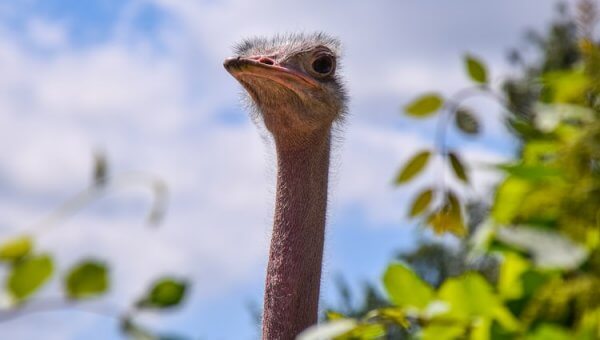4 min read
BREAKING: PETA has received a whistleblower tip alleging horrific abuse and suffering at American Ostrich Farms in Kuna, Idaho—a “humane” farm that peddles ostrich flesh.
The whistleblower reported that workers on the farm violently hit and kicked ostriches frequently. Some employees allegedly assaulted birds while moving them by inserting their boots into birds’ vents—or their rear orifices—while saying things like “I’m gonna f— you in the a–.” Some clearly panicked and distraught birds desperately attempted to get away, running full force into fences. The impact broke their wings and toes, skinned their legs, and ripped their chests open, according to the whistleblower.
American Ostrich Farms claims that the ostriches are “humanely raised,” including that they “have access to a thermally comfortable environment at all times, so that heat/cold stress does not occur” and “have access to fixed or mobile housing that keeps them dry and protects them from wind.” In stark contrast, the whistleblower reported that the farm confined birds to wet, muddy enclosures without adequate shelter from the rain, snow, and wind.
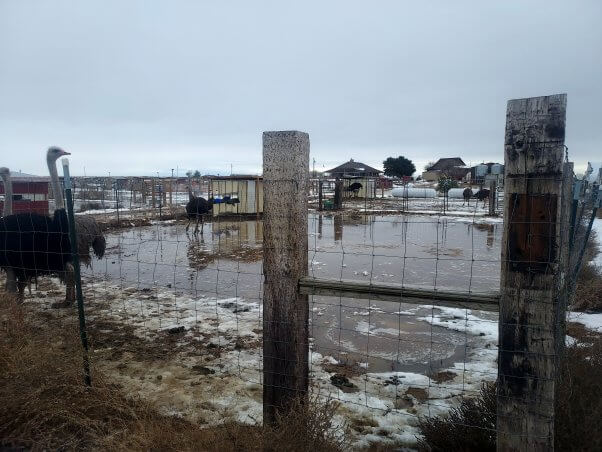
In their native homeland on the hot, dry African savannah, ostriches form strong social bonds and regularly groom themselves by rolling in the sand—but American Ostrich Farms allegedly denies them the opportunity to take dust baths or even to stay dry. According to the whistleblower, in the winter, the birds were forced to sit on freezing mud and their feet became frostbitten—one ostrich’s frostbitten foot split and exposed bone. The farm owner allegedly delayed ending the animal’s suffering for 24 hours, saying the bird was a “valuable breeder.” Many birds have reportedly died while frozen to the ground.
Workers allegedly neglected injured and underweight ostriches, often causing them to endure prolonged, painful deaths, and poured food for at least half the birds into mud or into broken, leaky feeders, resulting in wet feed they wouldn’t eat. In late 2023, many underweight birds reportedly froze to death as the weather grew cold.
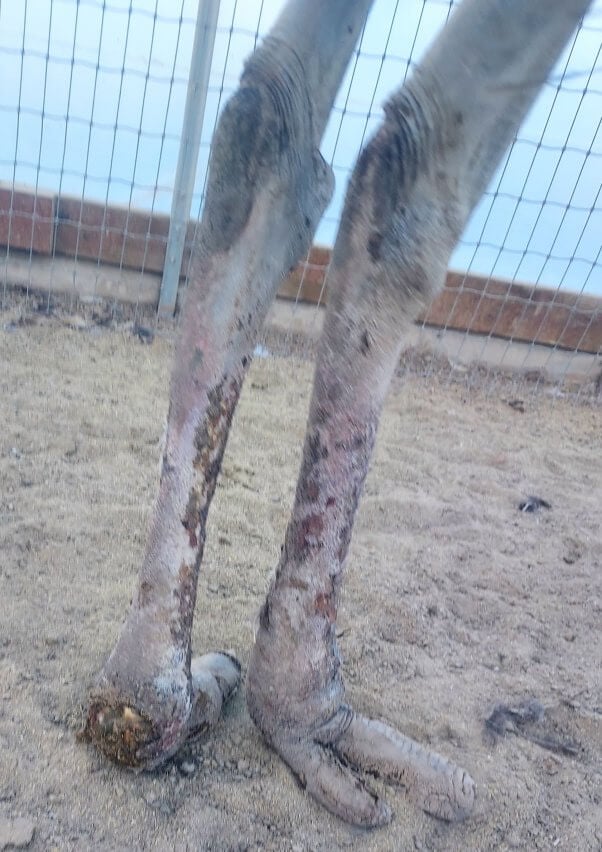
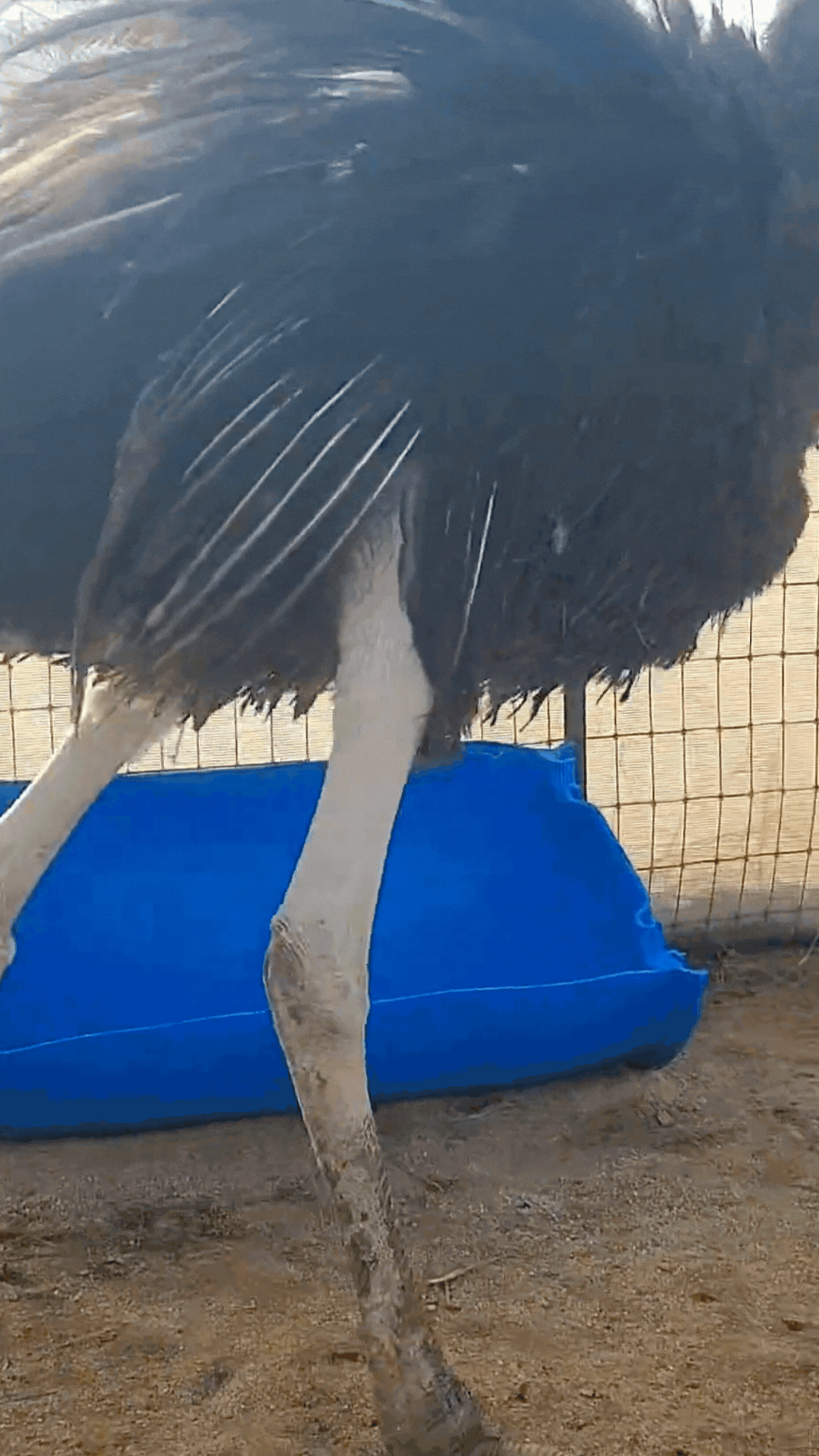
In one instance, the farm owner allegedly ordered a worker to take a young, underweight bird to the breeder pen, where she was “beaten” by other birds who didn’t allow her adequate access to food, causing abrasions on the back of her neck. By the time management agreed to let the whistleblower move her, she was too weak to walk.
According to the report, ammonia levels were so high in chick enclosures that up to 100% of the birds temporarily went blind, and ailing chicks huddled so tightly together that some suffocated to death.
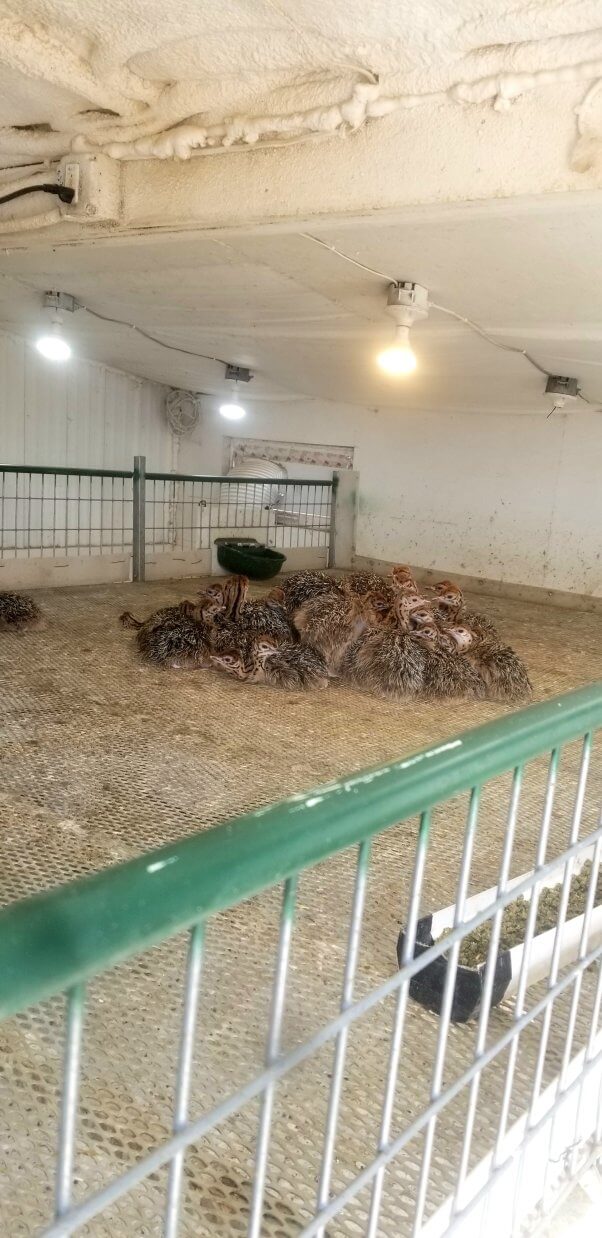
The whistleblower claimed that workers sometimes stepped on birds’ necks to hold their heads down before shooting them, and other workers cut chicks’ throats while they were still conscious, causing them to cry out and flail while bleeding to death.
Two weeks after the whistleblower’s claims were made public—giving the farm ample time to prepare and try to clean up—an Idaho State Department of Agriculture inspector visited and found some thin birds.
Ostriches are naturally protective of their fellow herd members, and at American Ostrich Farms, these social, intelligent animals were allegedly forced to watch as their friends and family were beaten, starved, and frozen to death in the mud. The reported suffering at this hellhole is one of the many reasons we urge everyone to ignore deceptive humane-washing claims, and to never buy real feathers to use in crafting or decoration. No matter where an animal-based product comes from, there’s simply no way to “humanely” slaughter animals for their flesh or feathers.
You Can Help!
Don’t be misled by marketing claims that animals are “humanely raised.” Only you can stop this suffering—by not paying for it. Avoid all animal-derived foods—even so-called “humane” meat, eggs, and milk—and animal feathers.
As long as companies continue to sell these ostriches’ flesh, they will continue to suffer. Please contact the grocers that American Ostrich Farms identifies as those that sell its meat, and urge them to reconsider their relationship with the company.

